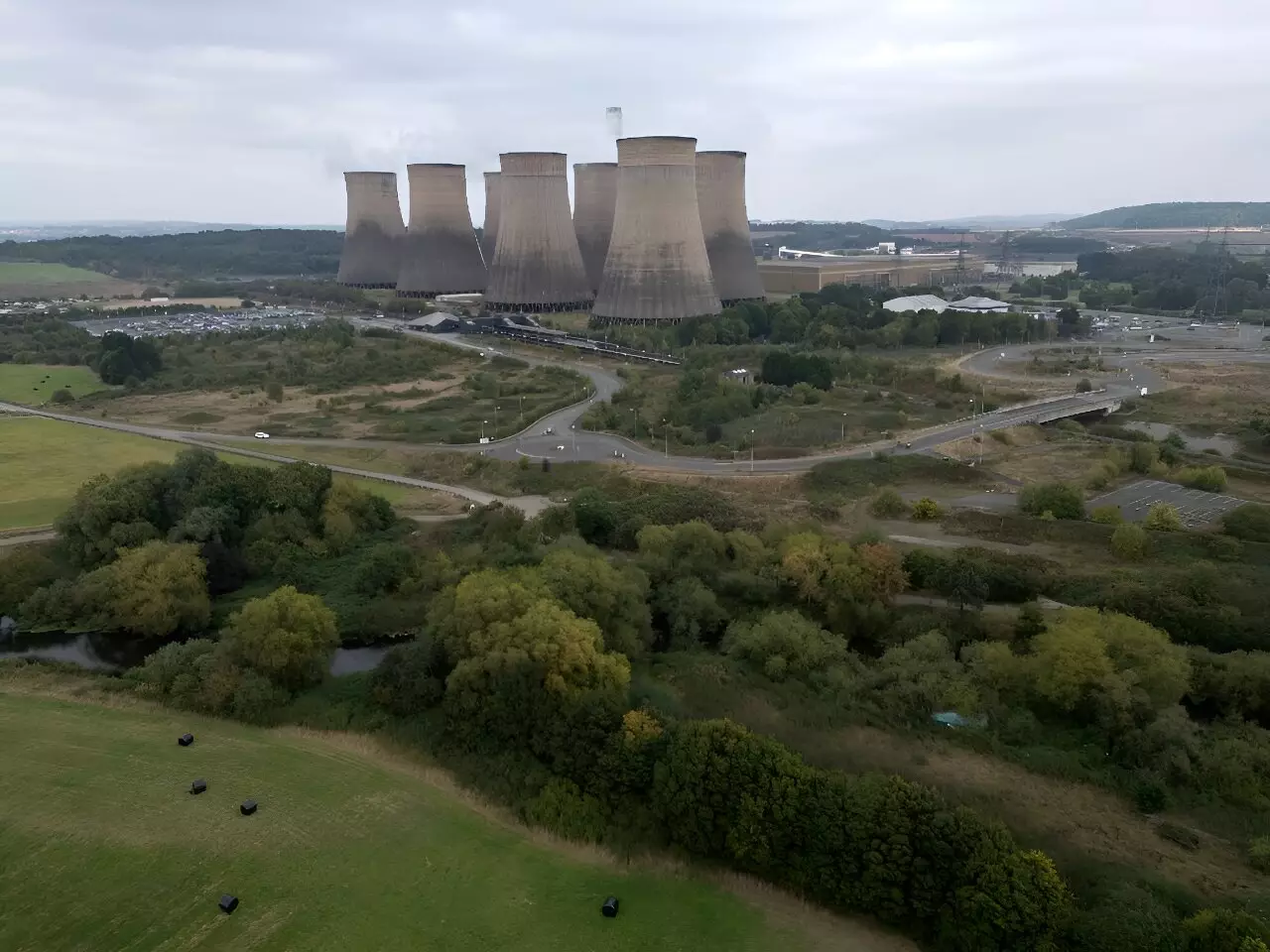The closure of the last coal-fired power station in the UK marks a significant milestone in the country’s energy landscape and a transformative shift in its approach to electricity generation. Effective from Monday, the Ratcliffe-on-Soar power plant, a prominent feature in central England’s skyline for over half a century, will no longer operate, making the UK the first member of the G7 to entirely move away from coal dependency for electricity production. This moment reflects a broader commitment to decarbonization, targeting a carbon-neutral status by 2050, and showcases how nations can redefine their energy futures.
Historically, coal has been a cornerstone of Britain’s economic framework. It powered the Industrial Revolution, facilitating immense industrial growth and catapulting the country to global prominence. As recently as the late 20th century, coal contributed a substantial 70 percent of the UK’s electricity generation. However, as awareness of environmental issues grew, and with the introduction of stringent regulations throughout the 1990s and early 2000s, coal use began a significant decline. By 2023, coal’s contribution to the energy mix had plummeted to a mere 1 percent, demonstrating an emphatic pivot towards cleaner energy sources.
The closure of Ratcliffe-on-Soar will lead to a two-year decommissioning phase, which will inevitably impact the 350 employees working at the plant. Uniper, the company that owns the facility, has assured that plans are in place for workforce redeployment, as well as provisions for severance packages in scheduled redundancy phases. Such transitions underline the critical need for strategic planning not only in energy production but also in workforce management during significant shifts within an industry.
The facility will transform into a “carbon-free technology and energy hub,” signaling a new direction for energy generation and technology in the region. This development not only aims to mitigate the economic impact of job losses but also aligns with the UK’s broader ambitions of fostering renewable energy initiatives. By investing in new technologies and training, the government seeks to create a thriving ecosystem of renewable energy jobs, contributing to a sustainable economy.
As a pioneer in phasing out coal, Britain sets a precedent for other nations, illustrating the feasibility and necessity of transitioning away from fossil fuels. This action comes in response to global agreements aimed at combating climate change, putting pressure on other G7 countries such as Italy, France, and Canada, which have set timelines for reducing their reliance on coal. Countries like Japan and the United States lack defined deadlines, highlighting the urgency for leading nations to catalyze change on an international scale.
The implications of Britain’s decision extend beyond its borders, echoing sentiments from environmental advocates like Doug Parr of Greenpeace UK who remarked on the importance of unity in the fight against fossil fuels. The journey does not end with coal; it signals the beginning of a more extensive campaign to reduce dependence on oil and gas. This comprehensive strategy emphasizes an acceleration towards renewables, demonstrating the government’s commitment to realizing its ambitious energy vision.
The current energy landscape showcases a significant shift, with natural gas providing a major portion of energy production alongside an impressive contribution from renewables. Wind power now accounts for around 25 percent, revealing the rising tide of sustainable alternatives. The newly elected Labour government plans to expedite these transitions, focusing on investment in offshore wind, tidal energy, and nuclear power, thereby paving the way for a diversified and sustainable energy portfolio.
Ratcliffe-on-Soar’s last days of operation serve as a potent reminder of the shifting times; once capable of powering millions of homes, it now symbolizes outdated technology in the face of rapid energy innovation. The station’s final coal delivery further illustrates a decline to inefficiency, as it could only provide power to a fraction of homes for just a short period.
Coal may have held a critical role in shaping the UK’s identity and economic growth, but the overwhelming consensus is that the future lies in sustainable energy solutions. As the nation closes the chapter on coal, it invites both challenges and opportunities in its quest for greener alternatives. By embracing innovation and investing strategically in renewable technologies, the UK can position itself as a leader in global efforts to combat climate change while securing a sustainable economic future for generations to come.

